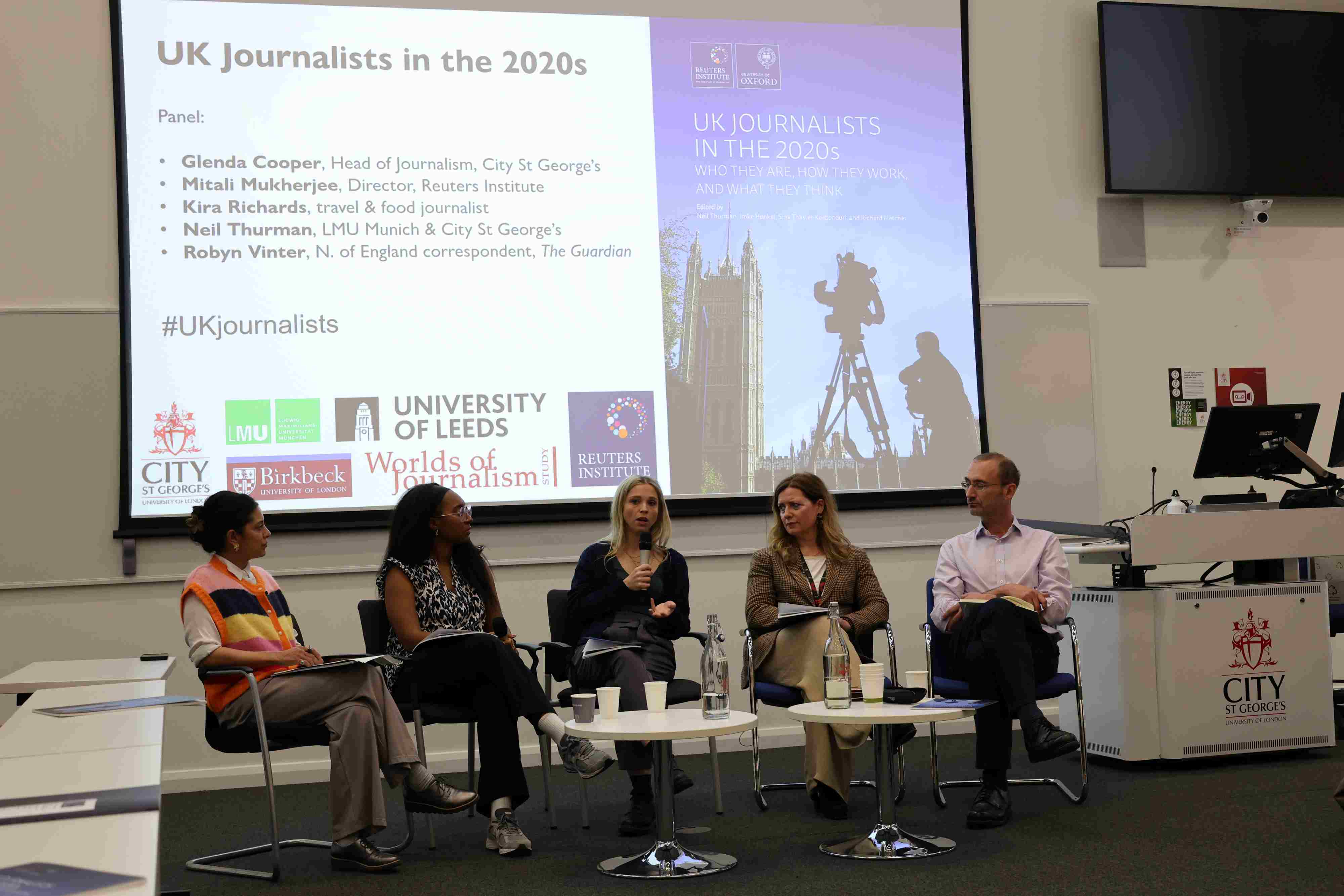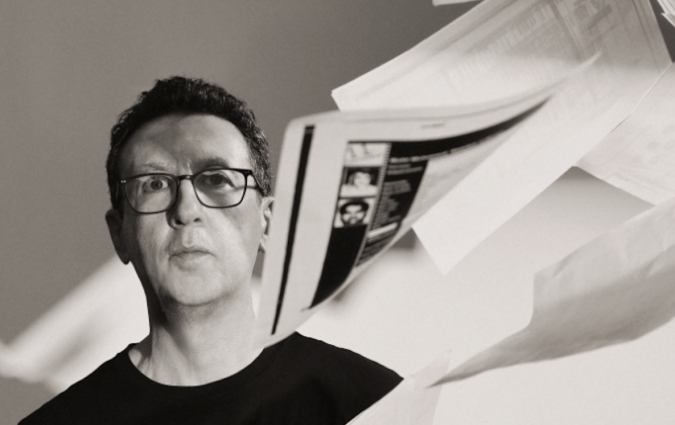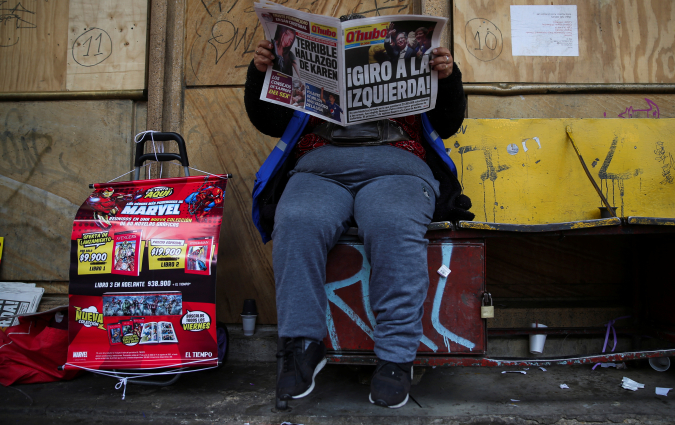How to change UK journalism: what we learnt at the launch of our report on the profession today

From left to right: Mitali Mukherjee, Kira Richards, Robyn Vinter, Glenda Cooper, Neil Thurman. Credit: Eve Lacroix
“I feel very grateful that those questions have been asked because there are moments when you can feel like you're going crazy” as someone belonging to a minority group in UK journalism, reporter Robyn Vinter said at the launch event of our recent report on UK journalists, which took place at City St George’s University of London earlier this week.
Vinter works as North of England Correspondent for the Guardian, and was referring to the experience of working-class journalists in the UK, who our report found remain a small minority in an industry still mired in elitism.
Vinter was one of the panellists discussing our recent ‘UK journalists in the 2020s’ report. The report is based on a survey conducted in late 2023 and published last week. It is a follow-up to research from 2015 and is part of the comparative international Worlds of Journalism Study project.
The event featured a presentation of the report’s key findings by lead editor Neil Thurman, followed by a panel chaired by the Reuters Institute’s director, Mitali Mukherjee, featuring the Head of the Journalism Department at City St George's, Glenda Cooper, Vinter and travel and food journalist Kira Richards. This article provides an overview of some of the themes of the discussions, along with some of the findings of the report.
A group lacking in diversity
Mukherjee started the discussion by noting the under-representation of several marginalised groups among UK journalists. Our survey found that UK journalists tend to be older than the general population, with 39% aged 50 and over compared to only 3% aged 18 to 24.
Despite an overall gender parity, journalists with less work experience are more likely to be female, whereas more experienced journalists are more likely to be male. Journalists from a non-white ethnic background were also under-represented in our sample of UK journalists compared to the 2021–2022 UK censuses.
Social class is still a significant cleavage in the UK, and often a difficult one to define clearly. By measuring class signifiers such as private education and socio-economic background, the report found a significant under-representation of journalists from a ‘working-class’ background, as defined by their parents’ occupation when they were growing up.
Vinter shared her own experience of growing up under the poverty line and entering journalism as someone with a working-class background, including dealing with the lack of personal connections that often lead to entry-level jobs in the industry. Vinter’s first job in journalism was for Farmers Weekly, a farming industry magazine. It was a good opportunity at that point in her career, she said, even though she didn’t aspire to write about agriculture.
“Trade publications are a really good starting point for working-class journalists, because they don't require the connections that nationals or broadcasters do,” she said.
The survey also found very large proportions of UK journalists had attended a fee-paying school, 13% for primary education and 22% for secondary school. This is “considerably above the 6% of all UK school children who attend a private school,” report co-author Imke Henkel writes.
This finding was very striking for Vinter. “I went to a below-average comprehensive school, and it's very, very rare for somebody in journalism to have had that same background,” she said. “I was talking to someone the other day, and they said that I was a statistical anomaly.”
When she was studying to be a reporter, Vinter realised she didn’t know about the most recognised pathways into the industry due to not knowing anybody who was a journalist. Even having the confidence to embark on this career was made more challenging by her background.
“If you've gone to a not very good state school, you'll know that it would be embarrassing to say that you wanted to be a journalist,” she explained. “If I had said at school that I wanted to write for the Guardian, it would have been hilarious. The idea that I thought I could end up at the Guardian would have been worth mocking. You train yourself not to have ambition. And in an industry like this, ambition and confidence are really important,” she said.
Vinter also remarked that people with a similar background to her tend to modify their accents, which are also class signifiers in the UK, to fit in with more privileged colleagues. “A lot of working class people get very good code switching, and are very good at being able to blend and fly under the radar,” she said.
A tough world for young journalists
Kira Richards, a recent graduate of City University’s MA in journalism, described how difficult her cohort found it to secure a stable job in the industry after graduation. “I did three back-to-back internships, and in that time I was looking for a full-time job, but it just didn't feel like those presented themselves,” Richards said.
This precarity is reflected in the report, which found a sharp decline in permanent contracts and a significant increase in the percentage of journalists doing freelance work between 2015 and 2023.
According to City St George’s Glenda Cooper, this adds to the diversity issues mentioned above, and makes it even more difficult for young journalists from lower-income backgrounds to kick-start their careers in the news industry.
“The perpetual internship culture puts off a lot of people who don't have secure backgrounds,” Cooper said. “It's not just about the connections. It's about how you survive if you've got to do endless internships.”
Another contributing factor to young journalists’ struggle to secure jobs in journalism may be the disappearance of the ‘traditional’ route from a first job in a local paper into national journalism. In 2023, most of the journalists in our sample (66%) said they worked for an outlet based in London, but this figure also included journalists working in regional offices of London-based outlets.
The large generational disparities among UK journalists also affected young people entering the profession in terms of newsroom culture.
“In my first job, I think I was one of two people who were under 50, and I think that that was quite glaring in terms of me trying to bring some different perspectives into that publication. Ultimately, it didn't align with what I was trying to do,” said Richards, who stressed that her current team at National Geographic Travel skews younger.
In many of her peers’ experiences, particularly those who work on news desks, dealing with a fast-paced, high-pressure environment, the demands of publishing several stories a day and working with much older, more senior colleagues result in difficulty standing up for themselves, Richards said.
A need for tech training
As the survey was carried out in 2023, many of the recent developments in generative AI are not captured in the responses. But the report suggests they do express some concern around newsroom automation, especially around its impact on people’s jobs. This was reflected in Vinter’s experience, but she noted that the journalists she knows are keen to use AI or automation for time-consuming and repetitive tasks.
“It can feel quite frightening. Within journalism, there has always been something to be learned that's new, and that's part of the dynamism of journalism,” Cooper said, but recent years have shown a marked need for new skills not obtained in the traditional training process for journalists, such as with vertical video and generative AI.
Cooper fears new skills training in these fields may fall to journalists individually rather than to the organisations that employ them, placing another obligation – and potentially, a cost – on journalists to stay employable.
Is it ethical to accept ‘freebies’?
The report found 43% of UK journalists deem it justified on occasion to accept a free product or service from sources, one of the highest proportions for this figure in the Worlds of Journalism Study’s international comparison.
This datapoint sparked a discussion among the panellists about the different circumstances that might lead a journalist to accept a ‘freebie’, and the ethical implications of this.
Thurman suggested that one reason for this international discrepancy might be a tendency for UK journalists to be more honest about engaging in this practice, and Vinter added that there may be different cultural interpretations of what constitutes a freebie.
Mukherjee suggested that accepting free products or services may point to journalism increasingly becoming a very poorly paying industry, especially (but not only) in the Global South.
For example, in Zambia, ‘blalizo’ payments from press conference and event organisers, originally intended as travel refunds, have become a supplementary source of income for journalists.
Moreover, Mukherjee said, some versions of accepting freebies are long-established practices, such as junkets for business journalists sponsored by large organisations. Similar offers are very widespread in travel journalism, Richards said, and are considered integral to the job.
“I don't think travel journalism could be what it is without freebies, she said. Free press trips have allowed her to report from the ground in various destinations. To her, this is acceptable as long as the experience offered is necessary for the reporting. This practice also opens up the possibility of travel reporting for lower-income journalists and those without the backing of large, well-funded organisations, she said. However, if an experience offered doesn’t align with her reporting, Richards would refuse it.
A safe working environment
Despite the report’s many sobering findings about the current state of UK journalism, it’s important to note that UK journalists still seem to operate in a protected environment for press freedom and face relatively few safety threats. The most significant threats mentioned in the report were demeaning or hateful speech and public discrediting.
Overall, the profession in the UK has several challenges on its plate, most significantly regarding young journalists, who are particularly impacted by the negative trends noted in the report. The panellists called for more support and training from news organisations (particularly large, well-funded ones), and initiatives to improve the diversity of newsrooms.
Vinter also suggested that more radical approaches might be appropriate for newsrooms like the Guardian’s, such as a commitment not to hire journalists educated at private schools or Oxford and Cambridge universities for some time. “People think that seems unfair, but the system at the moment is very unfair in a different way,” she said.
These discouraging findings didn’t prevent panellists from keeping an eye on the future. “I was listening to it, thinking, ‘Why does anyone become a journalist?’ It's the best job in the world, but we have to prepare the next generation of journalists to think about these tough working conditions,” Cooper said.
In every email we send you'll find original reporting, evidence-based insights, online seminars and readings curated from 100s of sources - all in 5 minutes.
- Twice a week
- More than 20,000 people receive it
- Unsubscribe any time
signup block
In every email we send you'll find original reporting, evidence-based insights, online seminars and readings curated from 100s of sources - all in 5 minutes.
- Twice a week
- More than 20,000 people receive it
- Unsubscribe any time







